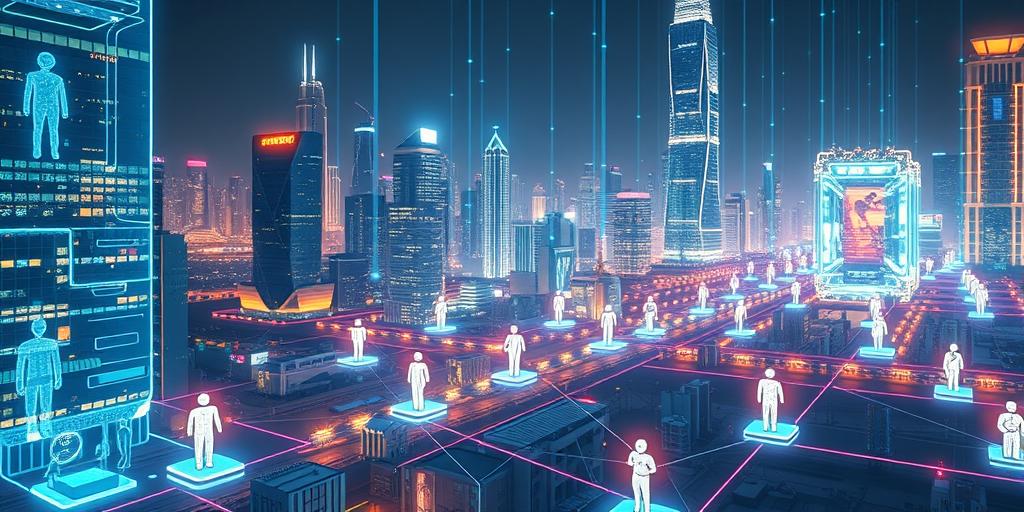Emerging technologies are revolutionizing every aspect of our lives, and communication is no exception. From the way we connect with loved ones to how we conduct business, these advancements are fundamentally changing how we interact with each other and the world around us.
The Evolution of Communication
From Smoke Signals to Smartphones
Communication has always been a cornerstone of human civilization. Our earliest ancestors relied on rudimentary methods like smoke signals and drums to convey messages over long distances. Over time, the invention of writing and printing allowed for the dissemination of knowledge and ideas, paving the way for the development of more sophisticated forms of communication. The telegraph and telephone further revolutionized communication, enabling instant communication across vast distances.
The Impact of the Internet
The advent of the internet in the late 20th century marked a turning point in human history. It transformed communication into an instantaneous, global phenomenon. Email, instant messaging, and social media platforms have connected people in ways never before imagined, fostering a sense of interconnectedness and global community.
Emerging Technologies Shaping Communication
Emerging technologies are pushing the boundaries of communication even further, creating unprecedented opportunities for connection, collaboration, and information sharing.
Artificial Intelligence (AI)
AI is rapidly transforming the communication landscape, impacting everything from how we interact with machines to how we communicate with each other.
Chatbots and Virtual Assistants
AI-powered chatbots and virtual assistants are becoming increasingly prevalent, offering personalized customer service, providing information, and even assisting with tasks. These intelligent agents can understand natural language, respond to queries, and learn from past interactions, creating a more engaging and efficient communication experience.
AI-Powered Translation
AI-driven translation tools are breaking down language barriers, facilitating seamless communication across cultures. Real-time translation services are making it easier than ever to understand and be understood in different languages, enabling global collaboration and cultural exchange.
Augmented and Virtual Reality (AR/VR)
AR and VR technologies are creating immersive communication experiences that blur the lines between the physical and digital worlds.
Immersive Communication Experiences
AR and VR can bring people together in virtual environments, creating a sense of presence and intimacy even when geographically separated. Imagine attending a virtual conference, interacting with colleagues in a lifelike setting, or visiting a museum exhibit from the comfort of your home.
Remote Collaboration Tools
AR/VR tools can enhance remote collaboration by enabling shared virtual workspaces, allowing teams to work together on projects, share ideas, and visualize designs in a more intuitive and collaborative way.
The Metaverse
The metaverse is a concept that encompasses a network of persistent, shared, and interconnected virtual worlds. It represents a new frontier in communication, offering opportunities for social interaction, entertainment, and even economic activity.
Virtual Worlds and Social Interaction
The metaverse will provide a platform for virtual worlds where users can interact with each other in a variety of ways, creating new forms of social interaction. Think of it as a persistent online world where you can socialize with friends, attend events, or even build your own virtual home.
New Forms of Communication
The metaverse is expected to spawn new forms of communication, such as immersive video conferencing, virtual avatars with expressive capabilities, and even haptic technologies that allow users to feel and interact with virtual objects.
The Future of Communication
The emerging technologies discussed above are laying the groundwork for a future of communication that is more personalized, accessible, and inclusive than ever before.
Personalized and Contextualized Communication
AI-powered communication tools will enable personalized and contextualized experiences, tailoring messages and content to individual preferences and needs. Imagine receiving personalized recommendations, getting assistance from AI-powered assistants, or interacting with digital content that adapts to your unique interests and learning style.
Enhanced Accessibility and Inclusivity
Emerging technologies have the potential to break down communication barriers and enhance accessibility for people with disabilities. For example, AI-powered translation tools can facilitate communication for individuals with hearing impairments, while AR and VR can provide immersive experiences for people with visual impairments.
The Rise of Human-Machine Collaboration
As AI and automation become more sophisticated, the lines between human and machine communication will continue to blur. We will increasingly work alongside AI agents, collaborating to solve problems, make decisions, and achieve common goals. This collaborative approach will require new skills and a deeper understanding of how to effectively communicate with intelligent machines.
Challenges and Considerations
While emerging technologies offer incredible opportunities for communication, they also present challenges that need to be addressed carefully.
Privacy and Security Concerns
The increasing reliance on technology raises concerns about privacy and security. AI-powered tools collect and analyze vast amounts of data about our communication patterns, preferences, and habits. It is crucial to ensure that this data is handled responsibly and ethically, protecting individuals from misuse and breaches.
Ethical Implications of AI and Automation
The rise of AI and automation also raises ethical questions. As AI becomes more sophisticated, we must ensure that it is used responsibly and ethically, avoiding bias, discrimination, and unintended consequences.
The Digital Divide and Access to Technology
The unequal access to technology, known as the digital divide, presents a significant challenge. Ensuring that everyone has equitable access to emerging technologies is crucial for promoting inclusivity and ensuring that everyone can benefit from the opportunities they offer.
Embracing the Future of Communication
The future of communication is exciting, but it requires a proactive approach. We need to embrace adaptability and innovation, continuously learning and evolving our communication skills to effectively navigate the changing landscape. By fostering a culture of collaboration and shared responsibility, we can ensure that emerging technologies are used for the betterment of humanity, creating a more connected and inclusive world for all.









